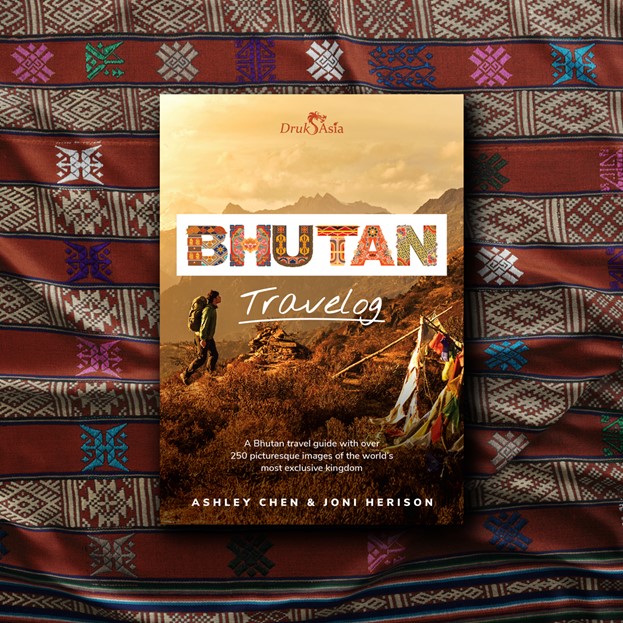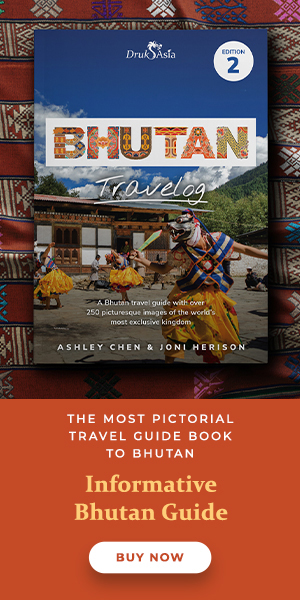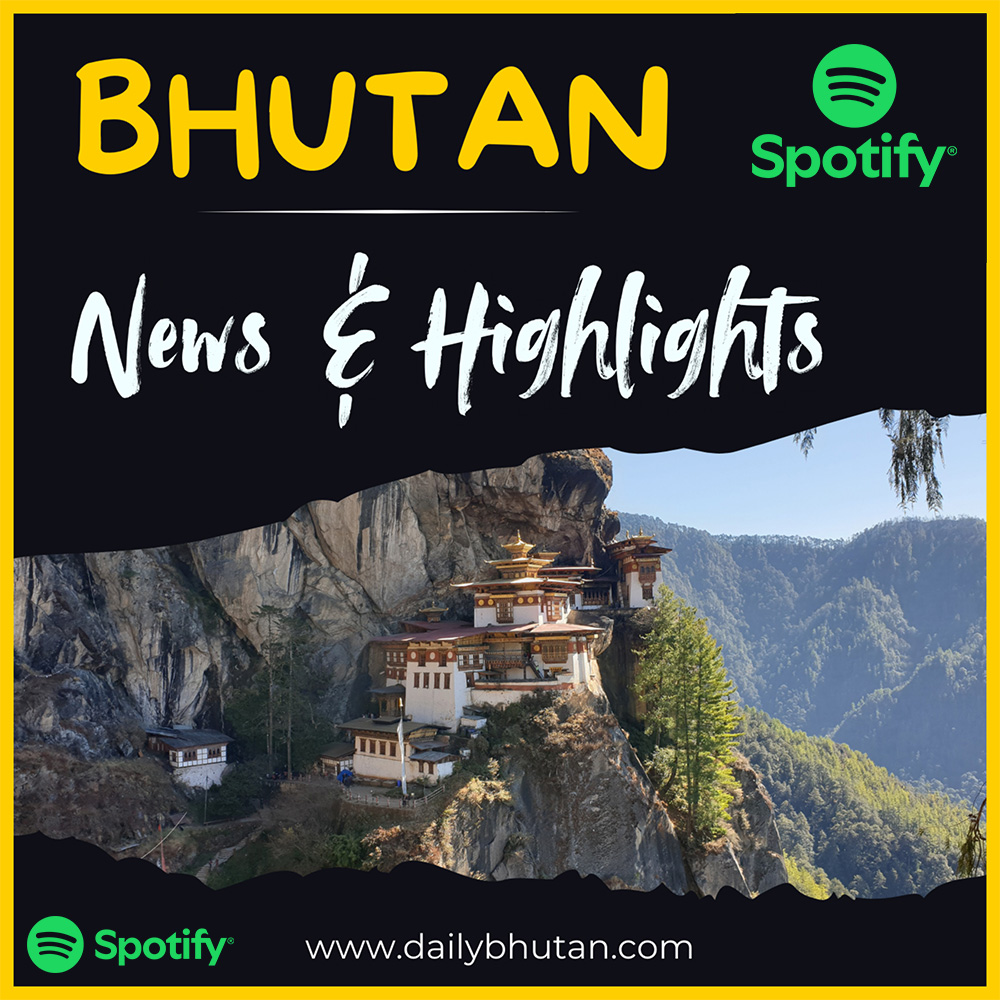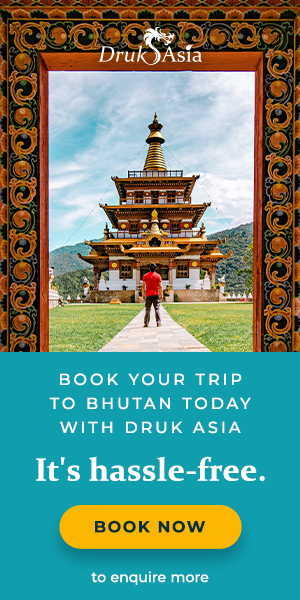Travel to Bhutan: experience the beauty of Punakha
Punakha district is easily one of the tourists' favourite valleys.
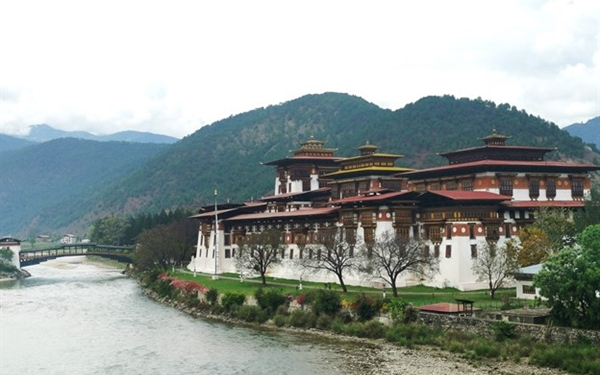
Until 1955 Punakha was once the capital city of Bhutan. It is one of the most beautiful districts in Bhutan with lush meadows, expansive terraces of paddy fields and two beautiful rivers: Mo Chhu and Pho Chhu. Blessed with a temperate climate, Punakha Dzong also serves as the winter residence of the Je Khenpo (the chief abbot).
Popular attraction sites in Punakha
Punakha Dzong
The magnificent Punakha Dzong was built in 1637 under the reign of Zhabdrung Ngawang Namgyal, which is located at the banks of the confluence of Mo Chhu River and Pho Chhu. The dzong has a massive historical significance where many major events of Bhutan took place, including the coronation of the first king and the royal wedding ceremony of the fifth king of Bhutan.
The dzong houses the sacred relics Rangjung Kasarpani, the remains of Zhabdrung Ngawang Namgyal and the Terton Pema Lingpa. The incredible dzong is at its best during the spring season when jacaranda trees bloom majestically in the courtyard.
Chimi Lhakhang
The sacred temple Chimi Lhakhang, known as the Fertility Temple is located in Sopsokha village standing on a round hillock. The temple is dedicated to Lama Drukpa Kuenly, a 15th-century saint from Tibet. He was known as the “Divine Madman” because of his unconventional ways of teaching Buddhism.
Prior to visiting Chimi Lhakhang, you'll start your journey from the shophouses at Sopsokha Village. In the village, you can find many murals and crafts of the bizarre phallus symbols. The phallus images and wood crafts come in all shapes, colours and sizes.
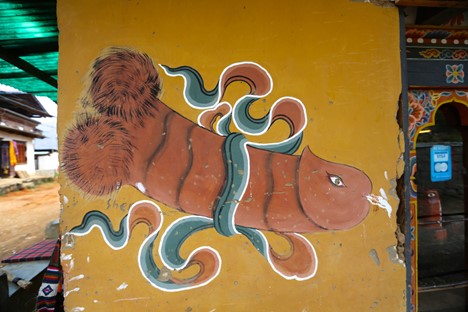
From the village, you'll walk through a beautiful paddy and mustard field for around 20 minutes to reach the entrance of Chimi Lhakang.
The interesting folklores associated with the temple is that Lam Drukpa Kunley subdued a demon of Dochu La with his “magic thunderbolt of wisdom” and trapped it in a rock at the location close to where the chorten now stands. And that is the story of how the symbol of the phallus became divine and protective in Bhutan.
Many childless couples or couples with newborns from all over the world visit the temple to seek blessings from Drukpa Kuenley. There are also many interesting modern miracles testimonies from parents who managed to conceive after visiting Chimi Lhakhang.
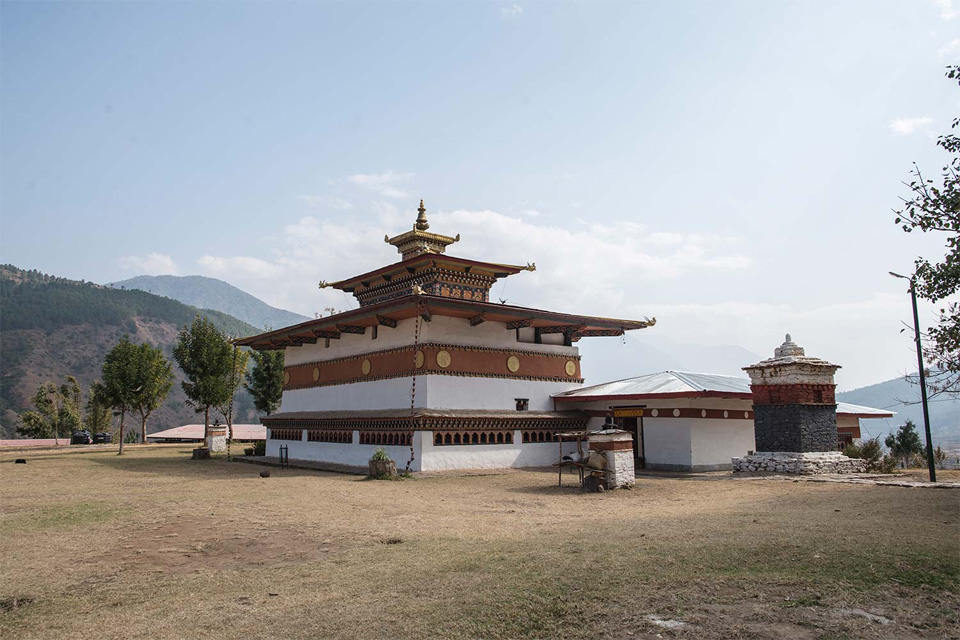
Khamsum Yulley Namgyal Temple
Khamsum Yulley Namgyal Chorten in Punakha was built in the year 2004 by Her Majesty Queen Mother of Bhutan, Ashi Tshering Yangdon to safeguard Bhutan from the evil forces and to bring peace and harmony to all living beings. The temple has three storeys; the first floor houses the statue of a powerful and wrathful deity, Vajrakilaya and on the third floor is the golden statue of Sakyamuni Buddha in his classic pose.
It takes an hour to hike up to the temple crossing through an adventurous suspension bridge. The journey provides a breathtaking panoramic view of Punakha valley, paddy fields and shimmering river from the top of the temple. Khamsum Yulley Namgyal Chorten is one of the finest examples of Bhutanese tradition and architecture.
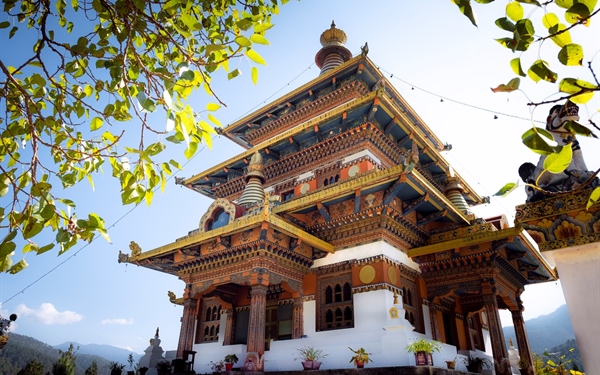
Sangchhen Dorji Lhuendrup Nunnery
Sangchhen Dorji Lhuendrup nunnery was built as a Buddhist college for nuns in 2008 and consecrated in 2010. The nunnery is perched high up on top of a hill overlooking three valleys of Toebesa, Punakha and Wangdue. The place is lovely, tranquil, clean and has a beautiful garden with colourful prayer flags.
Aside from visiting stunning sacred sites, you can also opt for some fun activities in Punakha such as whitewater rafting or attending the popular Punakha Tshechu.
Rafting in Punakha
Rafting in Punakha valley is the most popular soft adventure in Bhutan which is safe, fun and exciting. It is a blissful experience with an elegant and scenic view of Punakha valley. You can find exotic birds on the riverside as you are rafting through the rivers.
There are two rivers in Punakha for rafting: Pho Chhu (male river) and Mo Chhu (female river). The Pho Chhu covers a length of approximately 15 km followed by the Mo Chhu river with a 10 km course. Rafting experiences vary by season. In summer, river tides are high, currents fast, and the water looks muddy because of rain and during winter, river water is shallow, crystal-clear, and the flow is slow and calm.
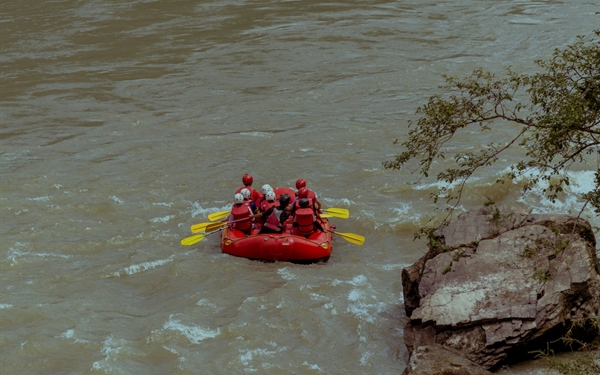
Punakha Tshechu
Punakha Tshechu takes place in February or March inside the incredible Punakha Dzong and it is one of the most popular religious festivals in Bhutan. It is held right after the popular Punakha Drubchen. The unfurling of the thongdrol (display of giant thangka) of Guru Rinpoche is the main attraction of the festival. It is believed that a mere sight of the thongdrol liberates and cleanse the sins. The tshechu is one of the best ways to experience the ancient living culture of Bhutan and socialise with locals.
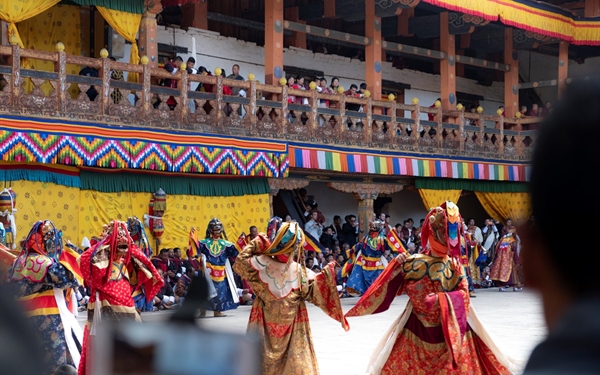
For more attractions in Bhutan, order your copy of Bhutan Travelog.
Purchase a Book, Support a Cause
If you'll like to support a charity cause in Bhutan, you can purchase your copy of the travel guidebook through the Bhutan Travelog website. Simple click on the link of the charity cause that resonates with you. SGD10 of the proceeds will go toward the charity of your choice.
